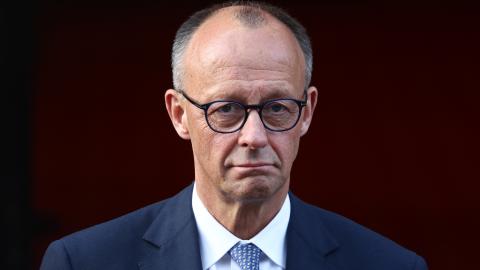During Donald Trump’s first term, Japan’s Prime Minister Shinzo Abe surprised the world and perhaps himself by building a solid relationship with the mercurial American president. U.S.-German relations, on the other hand, went through one crisis after another. The second time around, it’s the Germans who seem to be managing the relationship smoothly, while the Japanese have been disappointed.
The secret to Berlin’s success so far appears to lie with Chancellor Friedrich Merz and his disciplined approach to the trans-Atlantic relationship. When the Bundestag voted Mr. Merz’s government into power on May 6, U.S.-German relations were not in the happiest state. In February, Vice President JD Vance met with Alice Weidel, leader of the Alternative for Germany party, or AfD. Secretary of State Marco Rubio called the German decision to classify the AfD as an extremist organization “tyranny in disguise.”

















